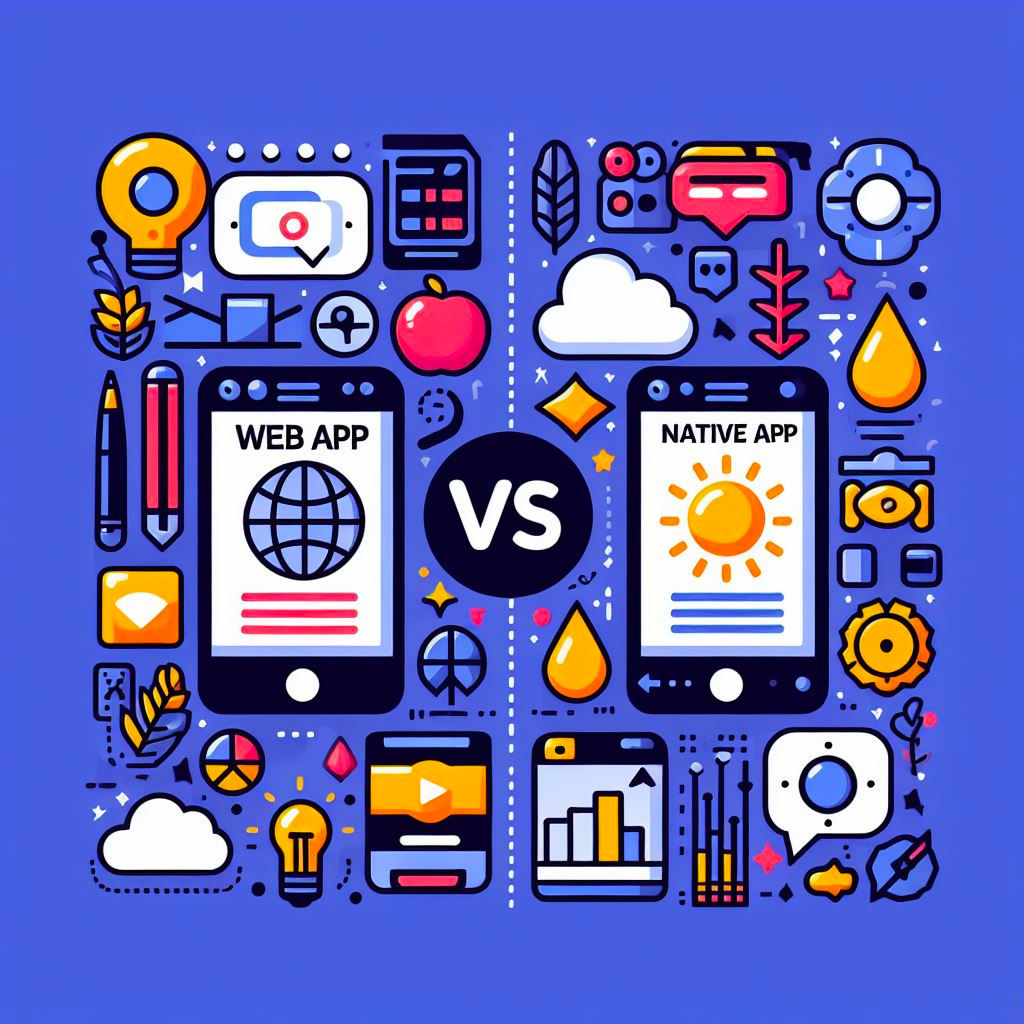 Web App vs. Native App: Demystifying the Differences and Choosing the Right Option
Web App vs. Native App: Demystifying the Differences and Choosing the Right OptionIn today's app-driven world, businesses face a crucial decision: should they develop a traditional native app or a web app? Both options offer distinct advantages and drawbacks, and the optimal choice hinges on your specific needs and goals. Here, we'll demystify the key differences between web apps and native apps, empowering you to make an informed decision for your business.
Understanding the Fundamentals
- Native Apps: Built specifically for a particular operating system (iOS, Android), utilizing the device's native features and offering optimal performance and offline functionality.
- Web Apps: Accessible through a web browser on any device, built with web technologies like HTML, CSS, and JavaScript. They offer platform-agnostic accessibility but may lack some native features and offline capabilities.
Key Differentiators
Development:
- Native Apps: Require platform-specific coding, leading to potentially higher development costs and timeframes.
- Web Apps: Developed using web technologies, often faster and more cost-effective to build, especially for cross-platform compatibility.
Performance:
- Native Apps: Leverage device hardware directly, resulting in smoother performance, faster loading times, and richer user experiences.
- Web Apps: Reliant on internet connection and browser capabilities, potentially leading to slower performance and limited functionality offline.
Accessibility:
- Native Apps: Downloaded from app stores, requiring users to have specific devices and potentially incur data charges.
- Web Apps: Accessible through any web browser, offering wider reach and eliminating download barriers.
Features:
- Native Apps: Can access device features like GPS, camera, and push notifications, enabling richer functionality and deeper user engagement.
- Web Apps: Limited by browser capabilities and might not have full access to all device features.
Cost:
- Native Apps: Development and maintenance costs can be higher due to platform-specific requirements and potential updates for different operating systems.
- Web Apps: Generally lower development and maintenance costs, especially for cross-platform compatibility.
Choosing the Right Option
The ideal choice depends on your specific needs and priorities. Consider these factors:
- Target audience: If you have a diverse user base across different devices and operating systems, a web app's accessibility might be crucial.
- Required features: If your app heavily relies on device-specific features like GPS or offline functionality, a native app might be necessary.
- Budget constraints: For tighter budgets, a web app's faster development and lower maintenance costs could be advantageous.
- Performance needs: If your app demands top-notch performance and rich user experiences, a native app might be worth the investment.
Examples:
- News apps: A web app might be suitable for news aggregation, offering easy access across platforms.
- Gaming apps: For complex, high-performance games, a native app would likely be the better choice.
- E-commerce apps: If offline browsing and purchase capabilities are crucial, a native app might be preferred.
Conclusion
Remember: There's no one-size-fits-all answer. Carefully evaluate your requirements, target audience, and budget to make an informed decision. Consider consulting with app development experts to guide you through the process and ensure you choose the option that best aligns with your business goals.
Additional Tips:
- Hybrid apps: Combine elements of both native and web apps, offering some native features with wider accessibility.
- Progressive web apps (PWAs): Offer app-like experiences within a web browser, providing some offline functionality and push notifications.
By understanding the key differences and carefully considering your needs, you can confidently choose the right app development path for your business, propelling it forward in the ever-evolving mobile landscape.
